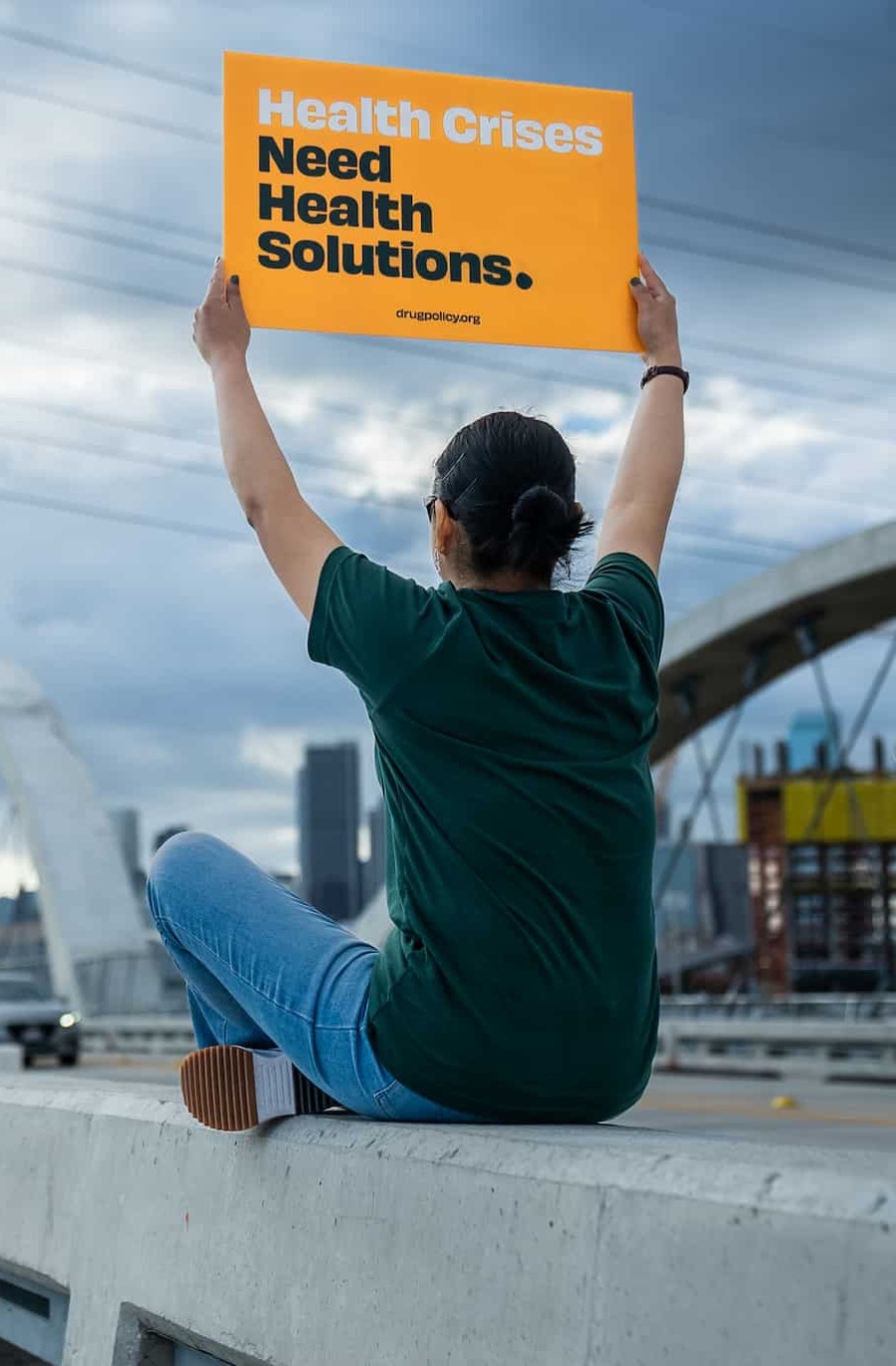
<p>Contact: Tony Newman (646) 335-5384 or Dr. Malik Burnett (202) 683-2983</p>
Washington, D.C. – A far-reaching marijuana decriminalization law takes effect in the District of Columbia Thursday that replaces jail time with a $25 fine for the possession of one ounce or less of marijuana, ending a year-long effort in the nation’s capital to reduce severe racial disparities in marijuana law enforcement by D.C. police officers. The “Marijuana Possession Decriminalization Amendment Act of 2014” takes effect tomorrow despite an ongoing Republican-led effort in Congress to block D.C. officials from implementing the law.
“We are hopeful that marijuana decriminalization will reduce excessive racial disparities in the enforcement of D.C.’s marijuana laws,” said Grant Smith, deputy director of national affairs with the Drug Policy Alliance. “While marijuana decriminalization is undeniable progress, the real solution is to join states like Colorado and Washington and legalize marijuana. Thankfully, D.C. voters are going to have that opportunity in November.”
Adopted by the D.C. Council in April, the new decriminalization law replaces criminal penalties for possession of small amounts of marijuana with a $25 civil fine for possession as well as forfeiture of the marijuana and any paraphernalia used to consume or carry it. By setting a $25 fine, which is the lowest civil fine for possession among eighteen states that have decriminalized small amounts of marijuana, D.C. lawmakers cited the need to be responsive to social factors such as homelessness in the District and high rates of poverty in Wards that have seen the greatest number of marijuana arrests. In order to reduce racially-biased stop-and-frisks, this new law contains a provision that prohibits a police officer from using the smell of marijuana as a pretext for conducting criminal searches — the first decriminalization legislation in the country to do so. The new law also shields people caught with a small amount of marijuana from collateral consequences like being denied public assistance or having their D.C. issued drivers’ license suspended or revoked. This decriminalization law is viewed by both D.C. council members and advocates as a model for other jurisdictions looking to reduce racial disparities in the criminal justice system.
Under federal law, legislation passed by D.C. lawmakers must be transmitted to Congress for a period of legislative review and Congress reserves the power to override D.C.-passed bills. Following passage of the marijuana decriminalization law by D.C. Councilmembers in April, Congress was provided 60 legislative review days, which has been active since early April. Although Congress did not move a resolution to overturn the measure before the expiration of the review period, the House Appropriations Committee approved a rider offered by U.S. House Representative Andy Harris (R-MD) late last month that utilizes congressional oversight to block the District of Columbia from spending any of its locally-raised revenues to implement the marijuana decriminalization law or enact other marijuana reforms.
Although D.C.’s decriminalization law takes effect tomorrow, House Republicans could halt local implementation of the law if the Harris rider is attached to any federal spending measures that pass out of Congress later this year. If included in the 2015 federal budget, the Harris rider would block the District from carrying out any law, rule or regulation to legalize or otherwise reduce criminal penalties for marijuana. The Harris rider has drawn opposition from President Obama who issued a Statement of Administration Policy on Monday expressing strong opposition to the Harris rider. President Obama would have to sign a measure containing the Harris rider in order for it to take effect.
“That Congressman Andy Harris would try to kill D.C.’s efforts to stop arresting people for marijuana possession is beyond disturbing,” said Dr. Malik Burnett, D.C. policy manager with the Drug Policy Alliance. “Rep. Andy Harris’s amendment is an affront to the District’s right to home rule, while ensuring that thousands of District residents continue to be arrested and suffer the collateral consequences associated with a criminal record. Congress should be following D.C.’s example and end racist marijuana arrest policies, instead of defying the will of the people and reversing their decision. It’s good to see the White House supporting the will of the people on this issue.”
Recent polls show broad support among District residents for following in the steps of Colorado and Washington and legalizing marijuana. The District of Columbia currently has the highest per capita marijuana arrest rates in the U.S. In 2010 African Americans in the District accounted for 91 percent of all marijuana arrests – even though African American and white residents use marijuana at roughly similar rates.


Notifications